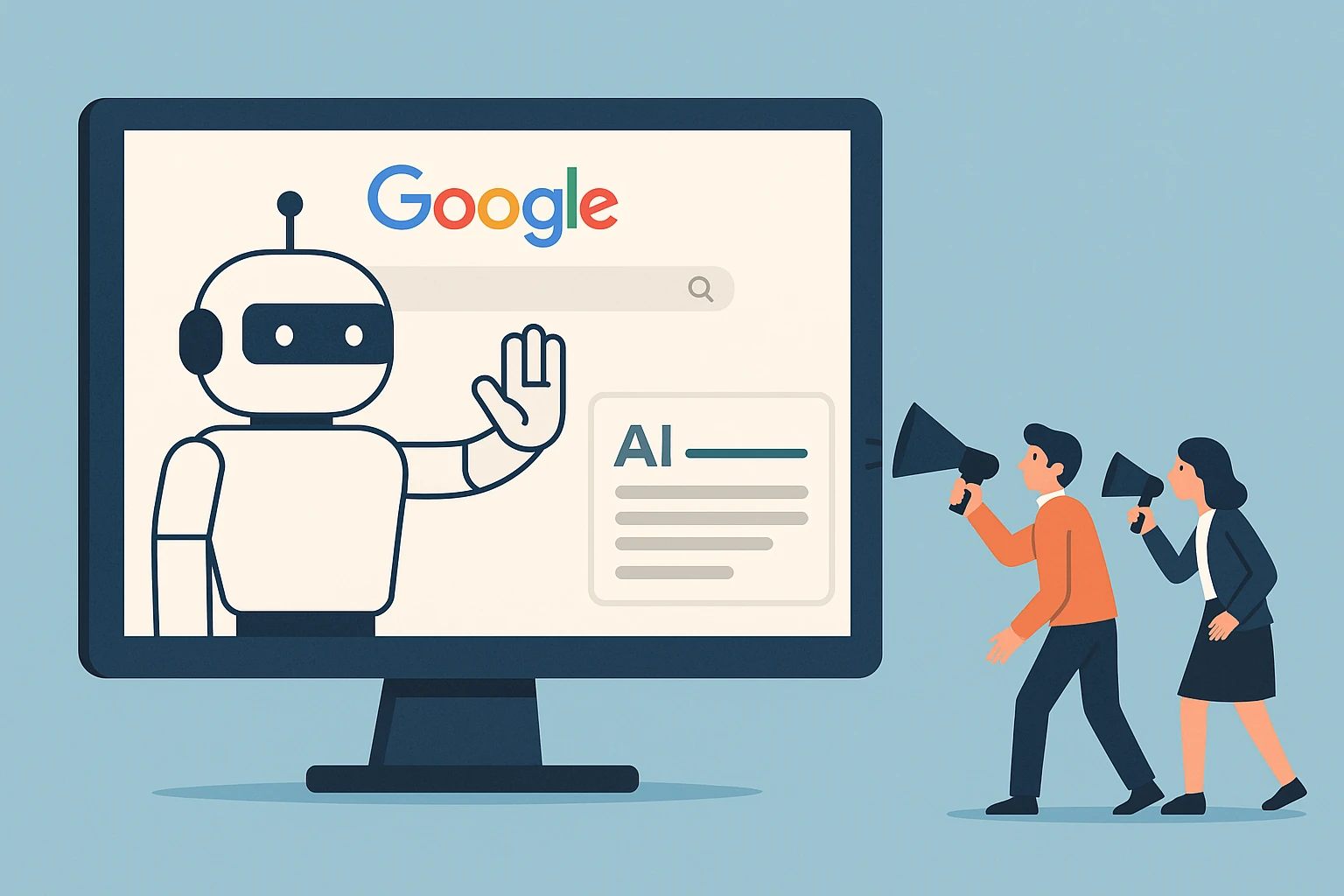A group of independent publishers files a complaint against Google over AI-generated summaries that allegedly hurt news websites
A new search era: Google gives answers, not just links
With the rollout of AI Overviews, Google has radically changed how people search. What used to be a gateway to countless websites has turned into a destination. Users now get a ready-made answer at the top of the page, written by artificial intelligence, making original sources increasingly irrelevant.
This shift has triggered a shockwave across digital publishing. Fewer clicks mean less revenue and threaten the very survival of independent news sites.
The complaint: is Google abusing its dominance?
Enter the Independent Publishers Alliance, a coalition of European publishers that has filed a formal complaint with the European Commission and the UK competition watchdog. The charge? Abuse of dominant position.
The accusation points to a system where AI-generated summaries appear above traditional results, answering users’ questions while bypassing the websites that created the content in the first place. Early studies already indicate double-digit drops in traffic for many news sites.
No way out: the opt-out trap
Perhaps the most controversial part of the complaint is the illusion of choice. Publishers say they can’t opt out of being used for AI training and summaries without disappearing from Google search altogether—a digital death sentence for most.
This lack of a real alternative, the Alliance argues, is further proof of Google’s unfair tactics.
Google responds: it’s innovation, not manipulation
Google firmly denies any wrongdoing. The company claims its AI features drive more curiosity, prompting users to ask more complex questions, which leads to new discovery opportunities for content creators.
According to Google, billions of daily clicks still go to external websites, and initial traffic impact studies are incomplete and misleading.
But for publishers, the concern goes beyond data—it’s about the future of independent journalism and online freedom of information.
A global storm brewing
This isn’t the first time Google’s AI practices have been challenged. In the United States, online learning firm Chegghas accused Google of similar antitrust violations, arguing that AI-generated answers hurt their ability to compete, leading to loss of traffic and subscriptions.
The pattern is clear: AI takes content, users stop clicking, and creators suffer.
FAQ
- What is Google’s AI Overviews?
Summaries generated by artificial intelligence placed above traditional search results. - Why are publishers upset?
Because AI answers reduce clicks and advertising revenue on their sites. - Who filed the complaint?
The Independent Publishers Alliance, representing various European publishers. - What are they accusing Google of?
Abusing its dominant market position and using content without proper consent. - How does Google defend itself?
By claiming that AI generates more engagement and discovery overall. - Can publishers opt out?
Not without vanishing from regular Google search results—making it an impossible choice. - Are there similar cases?
Yes, including a lawsuit in the U.S. by education company Chegg. - Is the EU investigating?
A formal complaint has been submitted, awaiting review. - What does this mean for users?
Faster answers, but at the cost of source diversity and transparency. - What’s at stake for publishers?
Their economic survival and ability to continue producing quality journalism.
Sign up for the newsletter. Stay updated!
We will send you periodical important communications and news about the digital world. You can unsubscribe at any time by clicking the appropriate link at the bottom of the newsletter.


Leave a Reply